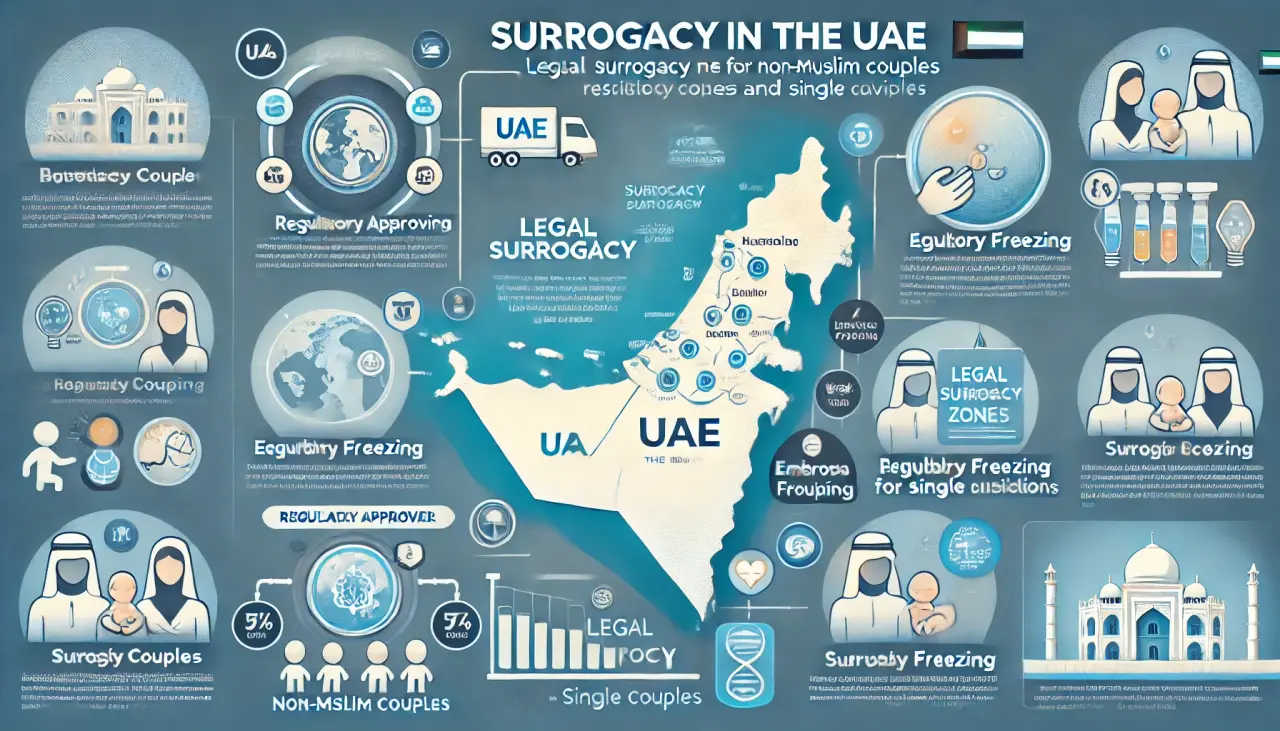
Surrogacy Laws ACT 2025: Legal Framework for IVF Surrogacy in Canberra
The laws governing surrogacy in the Australian Capital Territory (ACT) are outlined in the Parentage Act 2004, which is available in the ACT Legislative Register. In this article, we’ll explore the key requirements and regulations surrounding surrogacy in this region, including the latest updates on surrogacy laws ACT for 2025.
1. Requirements for Intended Parents and Surrogates in the ACT
Intended Parents
The following conditions must be met for individuals to qualify as intended parents in the ACT:
- Age: At least 25 years old.
- Residency: Must be a resident of the ACT.
- Relationship Status: Must be in a committed relationship, either as a married couple or common-law partners (heterosexual or same-sex).
Surrogates
For surrogates, the following conditions apply:
- Age: At least 18 years old.
- Residency: The surrogate does not need to be a resident of the ACT.
- Previous Parenthood: Must have already had at least one child of her own.
2. Surrogacy Regulations in the ACT
In the ACT (Canberra), commercial surrogacy is illegal. Any payments made to a surrogate must be strictly for reimbursing necessary expenses related to the surrogacy process.
Permitted Surrogacy Types
Only gestational surrogacy is allowed (i.e., the surrogate has no genetic link to the child). Traditional surrogacy (where the surrogate’s egg is used) was legalized in November 2023, providing more options for intended parents.
For individuals seeking IVF surrogacy in Canberra, the process is regulated under the framework set by the Parentage Act 2004, with IVF services aligning with these legal guidelines.
3. Enforceability of Surrogacy Agreements in the ACT
Surrogacy agreements made in the ACT cannot be enforced anywhere else in Australia. These agreements are not legally binding outside the jurisdiction of the ACT.
4. Payment Regulations for Surrogacy Arrangements
Legal Payments
- Legitimate payments: Intended parents may compensate the surrogate for necessary expenses related to pregnancy and childbirth.
Illegal Payments
- Illegal payments: Commercial surrogacy is prohibited in the ACT. Intentionally entering into a commercial surrogacy contract is considered a criminal act.
5. Key Tips on Surrogacy in the ACT
- Illegal Surrogacy Practices: ACT residents participating in commercial surrogacy outside of Australia or elsewhere in Australia are breaking the law.
- Illegal Assisted Reproductive Services: IVF clinics providing reproductive services to individuals involved in commercial surrogacy arrangements are also violating the law.
6. Finding a Surrogate or Intended Parents
Legal Practices
- Intended parents may discuss their surrogacy needs with others, but advertising surrogacy needs, such as posting on websites, is illegal.
Illegal Practices
- Surrogates cannot advertise themselves as available for surrogacy, including posting such information online.
7. Parentage Laws for Surrogacy in the ACT
At birth, the surrogate is automatically recognized as the legal mother of the child. If the surrogate is married or in a de facto relationship, her partner is considered the child’s other legal parent.
7.1 Preconditions for Parentage Orders
To apply for a parentage order in the ACT, intended parents must meet the following conditions:
- Conception: The child must have been conceived in the ACT. Note: As of November 2023, IVF treatments can be done outside the ACT.
- Legality of Surrogacy: Both gestational surrogacy and traditional surrogacy are legal in the ACT as of November 2023.
- Altruistic Surrogacy: The surrogacy arrangement must be altruistic, not commercial.
- Intent to Apply: The surrogate must agree that the intended parents will apply for the parentage order.
- Genetic Link: At least one intended parent must have a genetic link to the child.
- Residency: The intended parents must reside in the ACT.
7.2 Other Factors the Court May Consider
In addition to the above requirements, the ACT Supreme Court has discretion to consider the following factors when granting a parentage order:
- Age: Whether both intended parents are over 18 years old.
- Living Arrangements: Whether the child has been living with the intended parents since birth (or for a certain period).
- Legal Advice: Whether the intended parents, surrogate, and the surrogate’s partner have received appropriate legal counsel.
Conclusion
The surrogacy laws ACT in 2025 offer a clear and regulated framework for both intended parents and surrogates. With the introduction of legal traditional surrogacy in 2023, the ACT continues to evolve as a progressive jurisdiction for reproductive services. However, it’s essential that all parties involved understand the legal requirements and restrictions to ensure a lawful and smooth process. For those seeking IVF surrogacy in Canberra, understanding the local laws is crucial to navigating the surrogacy journey in this unique legal landscape.